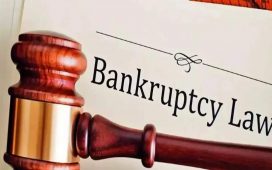The consumer champion Martin Lewis has said that the energy price cap should be called the energy “pants cap” because there are much cheaper energy deals available.
The cap is adjusted every quarter by Ofgem, the energy regulator for Great Britain, and imposes a maximum on how much suppliers can charge customers for each unit of gas and electricity. On Tuesday it increased by nearly £150 to the equivalent of £1,717 a year for an average dual-fuel household paying by direct debit.
As the new rate kicks in, the founder of the Money Saving Expert website sounded a call to action, telling consumers that you are “ripping yourself off” if you stay on the default tariff. “Nobody should be on the price cap but 85% of people are,” he said, urging consumers to head to a price comparison website to find a better deal.
Under the new cap, the average annual energy bill is poised to rise by £149, or 10%, from its current level of £1,568, which has been in place since July. However Lewis said Britons should shop around as there were deals that could “smash the pants of the price cap”.
He told BBC Radio 4’s Today programme: “We should probably call it a pants cap at the moment. If you are staying on the price cap right now you are ripping yourself off.
“There are fixed rates available that are cheaper than yesterday’s price cap [before it went up by 10%] and you can lock in for a year.” Analysts think the price cap will remain about the same when it reassesses the level in January, Lewis said.
There are plenty of fixed energy tariffs that are cheaper than the October price cap and more are coming on to the market as competition increases, Elise Melville, energy expert at the comparison site Uswitch.com, said. “The current cheapest fix is from Outfox the Market and costs £1,555 for households with average usage, which is £162 less than October’s price cap,” she added.
Most of the big providers have fixed-rate deals that are below the new cap. Uswitch also flagged tariffs from Ovo Energy and EDF Energy offering savings of about £150. However it is worth noting that some fixed-rate deals come with penalties for moving away within the fixed or discount period.
While the cap is still below the £2,500 at which the last government froze maximum bills at the height of the energy crisis, it is still well above autumn 2021, when average bills were capped at £1,277 a year. The government’s decision to get rid of winter fuel payments for all but the poorest pensioners also means there will be more pressure on vulnerable households this winter.
Lewis said it was wrong that a “90-year-old grandpa with onset dementia … will pay more to boil a kettle than I do”. It’s an “unfairness in the system”, he said, adding that some of the poorest people were going to struggle this winter.
after newsletter promotion
David Buttress, the chief executive of Ovo Energy, agreed, calling on the government to introduce a social tariff, something which is already used in the telecoms industry to help people who receive benefits such as universal credit pay their broadband bills.
The measure, which campaign groups have proposed for several years, would probably take the form of a targeted discount energy deal for poorer customers, and could be below the price of the cheapest available standard energy tariff.
“A social tariff would allow us to address the cost of energy for the poorest in our communities in a way that means, collectively, we could give them the protection they need to get through the winter months,” Buttress said.









